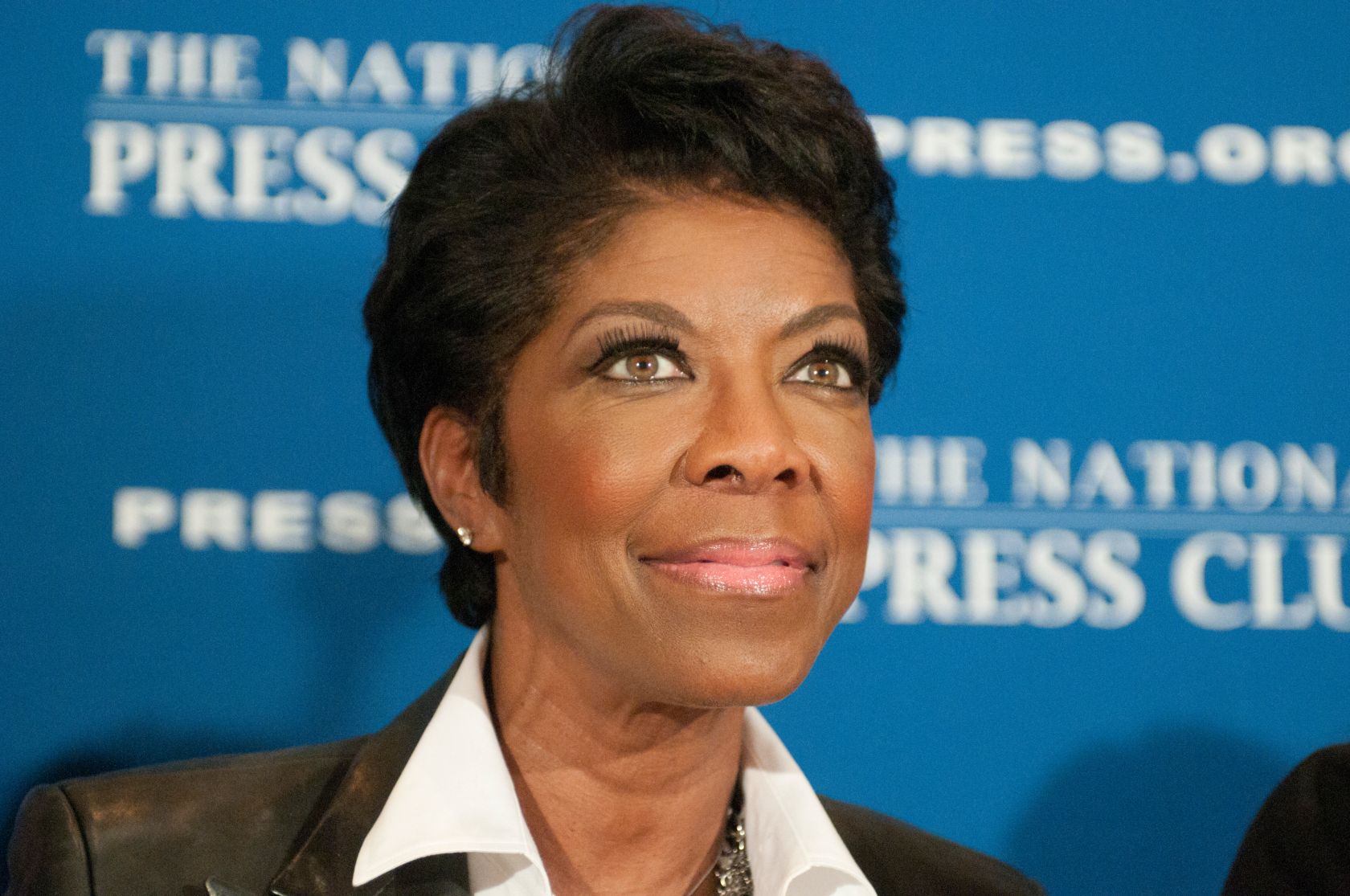Unraveling Natalie Cole's Cause Of Death: A Courageous Battle
The passing of a beloved icon often leaves a void, accompanied by a natural curiosity about the circumstances of their departure. For fans of the legendary Natalie Cole, the news of her death on New Year's Eve 2015 was met with profound sadness and a lingering question: what was the cause of Natalie Cole's death? While her battle with various health issues was somewhat known, the specific medical condition that ultimately claimed her life remained unclear to many until her family provided official clarification.
Natalie Cole, a Grammy-winning R&B singer whose voice captivated millions, fought a fierce and courageous battle against a complex array of health challenges. Her journey was marked by both incredible triumphs in her career and deeply personal struggles with addiction and illness. Understanding the full picture of her final days requires looking beyond a single diagnosis and acknowledging the intricate interplay of conditions that led to her passing. This article delves into the official revelations, the underlying health issues, and the dignified manner in which she faced her final moments.
Table of Contents
- Natalie Cole: A Brief Biography
- The Official Cause of Death Revealed
- Understanding Idiopathic Pulmonary Arterial Hypertension (IPAH)
- The Role of Kidney Transplant and Its Complications
- The Impact of Prolonged Drug Use
- A Fierce, Courageous Battle with Dignity
- The Final Moments and Family Statements
- Natalie Cole's Enduring Legacy
Natalie Cole: A Brief Biography
Natalie Maria Cole was born on February 6, 1950, in Los Angeles, California, into a family steeped in musical royalty. She was the daughter of the legendary jazz singer Nat King Cole and former Duke Ellington Orchestra singer Maria Hawkins Ellington. Growing up in such an environment, it was almost inevitable that Natalie would pursue a career in music. She began performing at a young age and later studied at the University of Massachusetts Amherst, where she began to seriously develop her musical talents. Her career truly took off in the mid-1970s with hits like "This Will Be (An Everlasting Love)" and "Our Love," earning her immediate recognition and multiple Grammy Awards. Her powerful voice and dynamic stage presence made her a force to be reckoned with in the R&B and pop genres. However, like many artists, she faced personal demons, particularly a battle with drug addiction that overshadowed parts of her career in the 1980s. Despite these challenges, Natalie Cole made a remarkable comeback in the late 1980s and early 1990s, most notably with her groundbreaking 1991 album "Unforgettable... with Love." This album featured her singing duets with her late father's recordings, including the iconic title track. The album was a massive commercial and critical success, selling over 14 million copies and earning her numerous Grammys, including Album of the Year. This triumph solidified her status as a music legend, demonstrating her resilience and undeniable talent. Her career spanned over four decades, leaving an indelible mark on the music industry.Personal Data and Biodata
| Attribute | Detail |
|---|---|
| Full Name | Natalie Maria Cole |
| Date of Birth | February 6, 1950 |
| Place of Birth | Los Angeles, California, USA |
| Date of Death | December 31, 2015 |
| Age at Death | 65 |
| Occupation | Singer, Songwriter, Actress |
| Parents | Nat King Cole (Father), Maria Hawkins Ellington (Mother) |
| Notable Works | "This Will Be (An Everlasting Love)", "Unforgettable" |
| Grammy Awards | 9 (including Album of the Year for "Unforgettable... with Love") |
The Official Cause of Death Revealed
In the days following her passing on December 31, 2015, at the age of 65, the public eagerly awaited official word on what was the cause of Natalie Cole's death. Her family, in a statement released to the Associated Press on Thursday, January 7, 2016, provided the definitive answer. They revealed that Natalie Cole's cause of death was idiopathic pulmonary arterial hypertension (IPAH), which ultimately led to heart failure. This announcement shed light on the specific medical condition that had been afflicting the singer. The family's statement was crucial in clarifying the details surrounding her passing, moving beyond general reports of "heart failure" to pinpoint the underlying rare disease. This information, corroborated by sources like ABC News, confirmed that the Grammy-winning R&B singer succumbed to complications arising from this severe lung condition.Understanding Idiopathic Pulmonary Arterial Hypertension (IPAH)
To truly grasp what was the cause of Natalie Cole's death, it's essential to understand idiopathic pulmonary arterial hypertension (IPAH). Pulmonary hypertension is a type of high blood pressure that affects the arteries in your lungs and the right side of your heart. In IPAH, the term "idiopathic" means that the cause is unknown. This rare and progressive disease affects the blood vessels in the lungs, causing them to narrow, thicken, or become stiff. When the blood vessels in the lungs are narrowed, it becomes much harder for the heart to pump blood through them. The right side of the heart, which is responsible for pumping blood to the lungs, has to work much harder to overcome this resistance. Over time, this increased workload weakens the heart muscle, leading to heart failure. This is precisely what happened in Natalie Cole's case; the IPAH directly led to the heart failure that was the immediate cause of her death. IPAH is a serious condition with no known cure, though treatments can help manage symptoms and improve quality of life. It can cause symptoms such as shortness of breath, fatigue, dizziness, and chest pain. The progressive nature of the disease means that it tends to worsen over time, placing an ever-increasing strain on the heart and lungs.The Role of Kidney Transplant and Its Complications
The narrative of what was the cause of Natalie Cole's death is further complicated by her medical history, specifically her kidney transplant. In 2009, Natalie Cole underwent a kidney transplant after being diagnosed with kidney failure. This was a critical turning point in her health journey. While the transplant itself was a life-saving procedure, it also introduced new challenges. Her family's statement to the Associated Press explicitly mentioned that "after Cole received a kidney transplant in 2009, she was diagnosed with pulmonary arterial hypertension, a rare lung" condition. This indicates a strong connection between the transplant and the onset of IPAH. It's not uncommon for individuals who have undergone organ transplants, particularly kidney transplants, to develop pulmonary hypertension. This can be due to various factors, including the long-term use of immunosuppressant medications (necessary to prevent organ rejection), or underlying conditions that contributed to the kidney failure in the first place. The body's complex systems are interconnected, and a significant medical event like an organ transplant can have ripple effects.Hepatitis C: A Long-Standing Battle
Before her kidney failure and subsequent transplant, Natalie Cole had been battling Hepatitis C, a viral infection that causes liver inflammation and can lead to serious liver damage, including cirrhosis and liver failure. She publicly admitted that her Hepatitis C diagnosis was a direct result of prolonged drug use decades earlier. This admission was a testament to her honesty and courage in facing her past. Hepatitis C can have systemic effects on the body, and it is a known risk factor for kidney disease. The chronic inflammation and immune system activation associated with Hepatitis C can damage the kidneys over time, potentially leading to kidney failure, which necessitated her 2009 transplant. Therefore, while not the immediate cause of death, Hepatitis C was a significant underlying factor in Natalie Cole's complex health profile, setting the stage for the cascade of events that followed. It contributed to the kidney failure, which then led to the transplant, and subsequently, the diagnosis of IPAH. This chain of events highlights the long-term consequences of past health struggles on overall well-being.The Impact of Prolonged Drug Use
Natalie Cole's journey was marked by a public and often painful struggle with drug addiction in the 1980s. She was candid about this period of her life, including how it led to her Hepatitis C diagnosis. While she had been sober for many years prior to her death, the long-term effects of prolonged drug use on her body were undeniable. Substance abuse can inflict significant damage on various organ systems, including the liver, kidneys, and cardiovascular system. As mentioned, her Hepatitis C was a direct consequence, and Hepatitis C, in turn, contributed to her kidney failure. While it's crucial to understand that her ultimate cause of death was IPAH leading to heart failure, the historical context of her drug use cannot be ignored when discussing her overall health trajectory. It was a contributing factor to the initial decline in her health that eventually led to the more severe conditions she faced later in life. Natalie Cole's story serves as a powerful reminder of the lasting impact of addiction, even years after recovery, and her strength in overcoming it.A Fierce, Courageous Battle with Dignity
Throughout her final years, Natalie Cole faced her health challenges with remarkable strength and grace. Her family's statement beautifully encapsulated this, noting that she "fought a fierce, courageous battle, dying how she lived... with dignity." This sentiment resonates deeply with those who followed her career and witnessed her resilience. Despite her declining health, she continued to perform when she could, demonstrating her unwavering dedication to her craft and her fans. Her public appearances became less frequent, and she had to cancel several engagements due to her health, but she never lost her spirit. Her ability to confront serious illness while maintaining a sense of composure and privacy, only revealing details when necessary, truly exemplified her dignity. Her fight against IPAH and heart failure was a testament to her inner strength, mirroring the determination she showed in overcoming addiction and reclaiming her musical legacy. The question of what was the cause of Natalie Cole's death is answered not just by medical terms, but by the narrative of her incredible fortitude.The Final Moments and Family Statements
Natalie Cole passed away on December 31, 2015, in a Los Angeles hospital. Her family was by her side. In their poignant statement, they expressed their profound loss and celebrated her life: "Natalie fought a fierce, courageous battle, dying how she lived... with dignity, strength and honor. Our beloved Mother and Sister will be greatly missed and remain UNFORGETTABLE in our hearts forever." The family's decision to publicly disclose the specific medical condition – idiopathic pulmonary arterial hypertension leading to heart failure – was an act of transparency that helped the public understand the complex nature of her illness. It provided closure for many fans who mourned her passing and sought to comprehend the full scope of her final health struggles. The clarity on what was the cause of Natalie Cole's death allowed for a more informed and empathetic remembrance of her life and career.Natalie Cole's Enduring Legacy
While the medical details of what was the cause of Natalie Cole's death are important for understanding her passing, her legacy extends far beyond her health battles. She was an artist of immense talent, a powerful vocalist who effortlessly blended R&B, pop, and jazz. Her music touched generations, from her early funk-infused hits to her timeless duets with her father. Her personal story of overcoming addiction and illness also served as an inspiration to many. She demonstrated that it is possible to rise above adversity and reclaim one's life and career. Natalie Cole's voice, her resilience, and her dignified approach to life's challenges will continue to resonate with fans worldwide. She left behind a rich musical catalog and a powerful testament to the human spirit's capacity for strength and renewal. Her impact on music and her courageous personal journey ensure that she will, indeed, remain "Unforgettable."Conclusion
The passing of Natalie Cole was a significant loss to the music world, and the question of what was the cause of Natalie Cole's death was answered by her family with clarity and dignity. We now know that she succumbed to idiopathic pulmonary arterial hypertension (IPAH), which led to heart failure. This primary cause was intricately linked to her earlier battle with Hepatitis C and the subsequent kidney transplant she received in 2009, with the long-term effects of past drug use also playing a role in her complex health history. Natalie Cole faced her final illness with the same grace and determination that defined her remarkable career. Her story is a poignant reminder of the interconnectedness of health issues and the enduring strength of the human spirit. She left us with a legacy of unforgettable music and an inspiring example of courage in the face of adversity. We invite you to share your favorite Natalie Cole memories or songs in the comments below. What did her music mean to you? Feel free to explore other articles on our site that celebrate the lives and legacies of iconic artists.- Are Robert De Niro And Al Pacino Friends
- Grease Year Made
- Is Tom Jones Married
- Jimmy Fallons Family
- Ingrid Bergman Bikini

Natalie Cole's cause of death revealed as rare lung disease | Euronews

Natalie Cole's Cause Of Death Revealed

Natalie Cole Death Cause Drugs Reelz